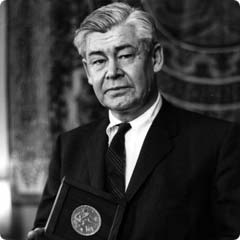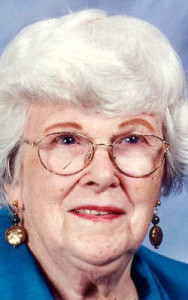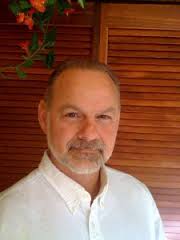geomythology
Geomythology *
Geomythology is a word coined by the geologist Dorothy Vitaliano in her 1973 book Legends of the Earth[306] to describe “the study of alleged references to geological events in mythology.”
Since then, the term has gradually gained widespread acceptance including an extensive entry in the Encyclopedia of Geology(a). The status of the subject has been consolidated by its inclusion as a separate course at the University of Puget Sound(b). Apart from Vitaliano other writers, such as Gerald Wells, have applied geomythology to the study of Atlantis without necessarily using the term(e). I should point out that mythology is also used to transmit details of spectacular astronomical events as well as more mundane political or military exploits.
Further support for the young discipline came with the publication of Myth and Geology by the Geological Society of London in 2007, with Luigi Piccardi & Bruce Masse as editors[1541].
Patrick Nunn, an Australian geologist, who, although an Atlantis sceptic has begun to reconsider the possibility of ancient myths containing important geological information(c). A 2017 paper by Nunn gave examples of where the application of geomythology has offered solutions to some old mysteries(g).
Also in May 2021, the BBC offered a lengthy paper, by Mark Piesing, on the development of geomythology in recent years and how it may have implications for our planet’s future(f).
>Professor Timothy John Burbery of Marshall University supports the linkage of the eruption of Thera with the Titanomachy in an August 2021 article(c). He has recently published his new book, Geomythology: How Common Stories Reflect Earth Events [1873].<
Cindy Clendenon, presumably inspired by Vitaliano, has launched a related new specialised field of study, which she has named ‘hydromythology’ in her 2009 book, Hydromythology and the Ancient Greek World [0801], a review of which is available online(d).
(a) Wayback Machine (archive.org) *
(d) https://web.archive.org/web/20190927120932/https://bmcr.brynmawr.edu/2010/2010-08-65.html
(e) https://web.archive.org/web/20160527131112/https://www.wrl-inc.org/tag/geomythology
(f) The myths that hint at past disasters – BBC Future
Masse, William Bruce
William Bruce Masse (1948- ) is an environmental archaeologist with the Los Alamos National Laboratory. He turned to mythology as means of  unravelling some of the world’s historical mysteries.
unravelling some of the world’s historical mysteries.
Italian geologist Luigi Piccardi along with Masse were co-editors of Myth and Geology[1541] where it was noted that “Myths are largely event-based, in that they are triggered to a large part by an event, or combination of events, that catastrophically impact society, then these myths provide a window upon those events that can be recovered, retrieved and even dated.”(b)
The publication of Myth and Geology gave a boost to the development of the new discipline of ‘geomythology‘.
In particular, Masse studied 175 flood myths among which two gave clues to a major event that occurred in 2807 BC, which Masse linked to a cometary impact south of Madagascar creating the Burckle Crater and producing a 600-foot tsunami that swept around the world(a). Masse implied a connection with the destruction of Atlantis when he co-authored a paper that was presented to the 2005 Atlantis Conference[0629] on the Burckle Crater.
Similarly, many biblical fundamentalists have adopted the Burckle theory as the most likely cause of Noah’s Deluge, although Masse, as far as I can determine, has not endorsed such a linkage.
Masse is a leading member of the Holocene Impact Working Group.
(a) https://www.sott.net/article/144125-Did-a-Comet-Cause-the-Great-Flood
Vitaliano, Dorothy B.
 Dorothy B. Vitaliano (1916-2008) was a geologist who published Legends of the Earth in 1973[0306] in which she discussed how catastrophic seismic or volcanic events were retained for posterity in the legends of the peoples who experienced them. She invented the term ‘geomythology’ to describe what she considered to be a distinct field of study.
Dorothy B. Vitaliano (1916-2008) was a geologist who published Legends of the Earth in 1973[0306] in which she discussed how catastrophic seismic or volcanic events were retained for posterity in the legends of the peoples who experienced them. She invented the term ‘geomythology’ to describe what she considered to be a distinct field of study.
Probably inspired by Vitaliano, Cindy Clendenon has promoted a new related field of study(c) that she calls ‘hydromythology’[0801].
Vitaliano’s book included a chapter on Atlantis in which she expresses her opinion that there is nowhere in the Atlantic Ocean that Atlantis could have existed. Understandably, sceptics of an Atlantic Atlantis seized upon this statement, while those that adhere to the idea that it had been a large island in that ocean were understandably dismayed. Vitaliano also discussed the biblical Plagues of Egypt and their connection with the eruption of Thera in the second millennium BC.
Dorothy’s husband, Charles J. Vitaliano (1910-2000) was also a professor of geology and together they pursued the study of major geological events and their effect on ancient cultures.
There are two of Vitaliano’s papers that are available online(a)(b)as well as some sample pages from her book(d) and a short review (e).
(a) https://www.scribd.com/doc/88638242/Geo-Mythology
(b) https://www.scribd.com/doc/88638136/Atlantis-a-Review-Essay
(d) https://www.bmblebeebbooks.net/book_pages/1174.html (link broken)
(e) https://digicoll.library.wisc.edu/cgi-bin/WI/WI-idx?type=div&did=WI.v20i4.i0016&isize=text
Wells, Gerald *
Gerald Wells is an American researcher who had opted for the western province of El Bayadh in Algeria as the location of Atlantis.  He uses geomythology to advance the radical idea that Atlantis was destroyed by a ‘tectonic tilting and continental uplift’ at the end of the Younger Dryas.
He uses geomythology to advance the radical idea that Atlantis was destroyed by a ‘tectonic tilting and continental uplift’ at the end of the Younger Dryas.
In another paper(c), Wells offers further geological evidence that Atlantis did not sink, but only appeared to do so, while it actually rose. If so, I wonder how could such an event create muddy shallows (Timaeus 25d) that existed as a navigational hazard even in Plato’s time.
Wells has offered ten important correlations between Plato’s description and the physical evidence available at his chosen site on the western edge of the Sahara. These include an extensive canal system, red, white and black stone, a complex of meteorite craters (Rings of Atlantis) and hydrothermal springs. Wells further contends that Atlantis was known in pre-dynastic Egypt as Bakhu. However, there is a consensus among other scholars that Bakhu was a mount in the EAST, whereas Wells’ Atlantis/Bakhu is in the WEST. Wells’ ideas were presented to the 2008 Atlantis Conference in Athens and are now available on the Internet(a).
Now that he has been granted tax-exemption status in the U.S. he is hoping to raise $250,000 to fund an initial two-week survey. See his new web address(b).
Wells also identified his Algerian Atlantis location as having included the biblical Garden of Eden(e).
Wells has now produced a video(d) in support of his theories. Apart from that, little has been heard from Wells in recent years. In fact, most of the links to his material are now offline apart from(c).
In 2008, Wells was a regular contributor to forums on the atlantisrising.com (now closed down) and the atlantisonline websites.
(a) Atlantis-Bakhu | Wells Research Laboratory (archive.org) * six pages
(b) https://web.archive.org/web/20190128080100/https://www.wrl-inc.org/
(c) https://www.academia.edu/10055298/A_Focus_on_the_Geologic_Sciences_Related_to_Atlantis-Bakhu
(d) https://www.youtube.com/watch?v=NZmdvhh1jIk
